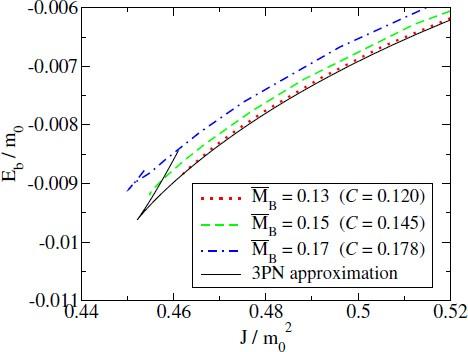黑洞-中子星双星的合并
IF 62.5
2区 物理与天体物理
Q1 PHYSICS, PARTICLES & FIELDS
引用次数: 291
摘要
本文综述了黑洞-中子星(BH-NS)双星合并的广义相对论研究现状。首先,总结了准平衡圆轨道上BH-NS双星的求解过程以及高精度计算的准平衡序列和质量脱落极限等数值结果。然后,介绍了BH-NS双星并合的数值相对论模拟的现状。我们总结了我们对合并和/或潮汐破坏过程的理解,潮汐破坏的判据,潮汐破坏后形成的残余物的性质,重力波形和重力波谱。本文章由计算机程序翻译,如有差异,请以英文原文为准。

Coalescence of Black Hole-Neutron Star Binaries
We review the current status of general relativistic studies for the coalescence of black hole-neutron star (BH-NS) binaries. First, procedures for a solution of BH-NS binaries in quasi-equilibrium circular orbits and the numerical results, such as quasi-equilibrium sequence and mass-shedding limit, of the high-precision computation, are summarized. Then, the current status of numerical-relativity simulations for the merger of BH-NS binaries is described. We summarize our understanding for the merger and/or tidal disruption processes, the criterion for tidal disruption, the properties of the remnant formed after the tidal disruption, gravitational waveform, and gravitational-wave spectrum.
求助全文
通过发布文献求助,成功后即可免费获取论文全文。
去求助
来源期刊

Living Reviews in Relativity
物理-物理:粒子与场物理
CiteScore
69.90
自引率
0.70%
发文量
0
审稿时长
20 weeks
期刊介绍:
Living Reviews in Relativity is a peer-reviewed, platinum open-access journal that publishes reviews of research across all areas of relativity. Directed towards the scientific community at or above the graduate-student level, articles are solicited from leading authorities and provide critical assessments of current research. They offer annotated insights into key literature and describe available resources, maintaining an up-to-date suite of high-quality reviews, thus embodying the "living" aspect of the journal's title.
Serving as a valuable tool for the scientific community, Living Reviews in Relativity is often the first stop for researchers seeking information on current work in relativity. Written by experts, the reviews cite, explain, and assess the most relevant resources in a given field, evaluating existing work and suggesting areas for further research.
Attracting readers from the entire relativity community, the journal is useful for graduate students conducting literature surveys, researchers seeking the latest results in unfamiliar fields, and lecturers in need of information and visual materials for presentations at all levels.
 求助内容:
求助内容: 应助结果提醒方式:
应助结果提醒方式:


